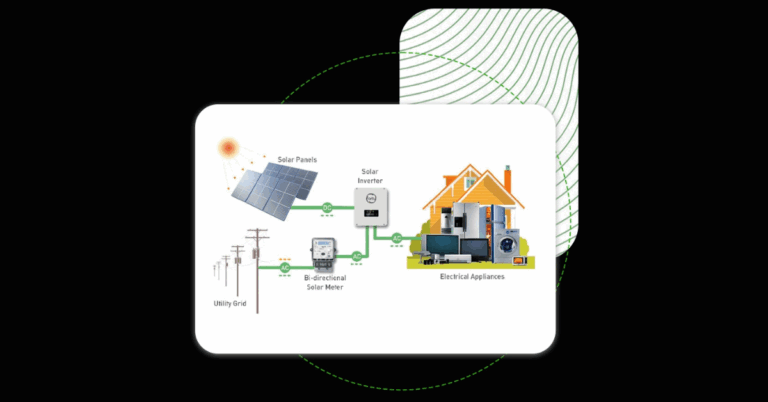Best CRM for Realtors: Boosting Real Estate Success with the Right CRM Solution
In the competitive world of real estate, maintaining strong relationships with clients, prospects, and partners is critical. Realtors face unique challenges in managing numerous leads, properties, appointments, and negotiations simultaneously. To stay ahead in the game, leveraging technology is essential, and a powerful Customer Relationship Management (CRM) system can make all the difference.
The Best CRM For Realtors can automate key processes, streamline communication, and provide valuable insights to close deals faster and more efficiently. In this article, we will explore why CRM solutions are indispensable for realtors, the key features to look for, and how to select the best CRM to enhance your real estate business.
What is a CRM for Realtors?
A CRM for realtors is a specialized tool designed to help real estate professionals manage their client interactions, leads, sales pipeline, and property listings. It serves as a central hub for storing information about clients, properties, transactions, and communication history. A CRM enables realtors to keep track of every interaction, automate follow-ups, and optimize their sales processes to increase productivity and sales performance.
In short, a CRM for realtors helps organize the many moving parts of the real estate business, ensuring that realtors never miss an opportunity and can provide the best possible service to their clients.
Key Features of the Best CRM for Realtors
1. Lead Management and Tracking
A CRM’s lead management capabilities are essential for realtors. Whether it’s a phone inquiry, an online form submission, or a referral, a CRM can capture and track leads automatically. You can assign leads to specific agents, track their progress through the sales funnel, and set reminders for follow-ups.
By organizing leads efficiently and ensuring no lead slips through the cracks, realtors can respond faster, nurture relationships more effectively, and close deals with greater ease.
2. Property Listing Management
Managing property listings is a core function of a realtor’s daily tasks. A CRM designed for real estate professionals will enable you to organize and showcase property listings, including key details such as price, square footage, amenities, and photos.
The best CRMs for realtors allow easy syncing with multiple listing services (MLS) and can automatically update property data, ensuring listings are always accurate and up to date. This eliminates the need for manual data entry and minimizes errors.
3. Automated Communication and Follow-Ups
Communication is at the heart of every successful real estate transaction. A CRM helps streamline communication by automating routine follow-ups, appointment scheduling, and email responses. With automatic notifications and reminders, realtors can ensure they never miss an important meeting or communication with a client.
Many CRMs also allow realtors to set up personalized email templates for different stages of the sales process, such as initial inquiries, property viewings, or closing updates. This automation saves time and ensures consistent messaging.
4. Task and Calendar Management
Real estate professionals juggle multiple tasks daily, from scheduling property showings to negotiating contracts. A CRM system with built-in task and calendar management features helps you stay organized by consolidating all tasks, meetings, and deadlines in one place.
With calendar syncing, reminders, and task assignment, agents can better manage their time and focus on closing deals instead of worrying about administrative details.
5. Client and Contact Management
A real estate CRM centralizes all client data, including contact details, communication history, preferences, and transaction history. This allows realtors to tailor their approach to each client based on their needs, preferences, and past interactions.
For example, if a client is interested in purchasing a particular type of property, the CRM can alert the realtor when similar properties become available. This personalized service builds trust and increases the likelihood of repeat business and referrals.
6. Sales Pipeline Management
A well-organized sales pipeline is crucial for maximizing conversion rates. A CRM for realtors allows you to track the progress of each lead or deal through every stage, from initial inquiry to final closing. You can see at a glance which leads require follow-up, which deals are near completion, and where bottlenecks may be occurring.
This visibility helps agents stay proactive, move deals forward more efficiently, and ultimately close more sales.
7. Mobile Accessibility
In real estate, agents are always on the move, whether they’re showing properties, attending meetings, or networking. A CRM with a mobile app allows agents to access client information, property listings, and schedules from anywhere. This ensures they can stay productive on the go and respond to clients quickly, even when they’re not in the office.
Benefits of Using a CRM for Realtors
1. Increased Efficiency
By automating routine tasks, managing leads effectively, and organizing communications, realtors can save valuable time. This efficiency allows them to focus on high-priority tasks, such as meeting clients and closing deals. As a result, a CRM for realtors can lead to higher productivity and more successful transactions.
2. Better Client Relationships
A CRM helps realtors provide more personalized and timely service. By storing detailed information about clients and keeping track of communication history, realtors can tailor their interactions and offer more relevant property recommendations.
Consistent communication, personalized engagement, and timely follow-ups help build strong, lasting relationships with clients, which are key to gaining repeat business and referrals.
3. Improved Lead Conversion
A CRM enables realtors to capture, track, and nurture leads effectively, ensuring that no potential client falls through the cracks. By providing tools to automate follow-ups and reminders, realtors can stay on top of their leads and convert more of them into actual sales.
By nurturing leads with the right information and timely follow-ups, realtors can turn initial inquiries into successful transactions, ultimately increasing sales and commissions.
4. Data-Driven Decision Making
Real estate CRMs come equipped with powerful analytics and reporting tools that allow realtors to track performance metrics, such as lead conversion rates, sales cycle times, and agent productivity. These insights can help agents identify areas for improvement, refine their strategies, and make data-driven decisions to optimize their business.
For example, a CRM can provide reports on which marketing channels are generating the most leads, helping realtors allocate resources more effectively.
5. Collaboration Among Team Members
In larger real estate teams, a CRM ensures that everyone is on the same page. By centralizing client information, property listings, and transaction data, team members can collaborate more effectively, share updates, and ensure that nothing slips through the cracks.
Whether it’s assigning leads to specific agents, tracking a transaction’s progress, or updating client preferences, a CRM keeps everyone in sync and working toward the same goal.
How to Choose the Best CRM for Realtors
1. Ease of Use
The best CRM for realtors should be intuitive and easy to navigate. A complicated, clunky system can lead to poor adoption by the team and hinder productivity. Look for a CRM that offers an easy-to-use interface and a smooth learning curve.
2. Customization and Scalability
Every real estate business has unique needs. Whether you run a small agency or a large real estate firm, your CRM should be customizable to suit your specific requirements. Additionally, ensure that the CRM can scale with your business as it grows.
3. Integration with Other Tools
A CRM for realtors should integrate with other software commonly used in the real estate industry, such as MLS platforms, email marketing tools, and document management systems. This ensures seamless data flow and reduces the need for manual data entry.
4. Customer Support
Reliable customer support is essential when using any CRM. Choose a CRM provider that offers responsive support to help with any issues that arise, whether it’s during the setup process or ongoing use.
Conclusion
A CRM system is a game-changer for realtors, providing essential tools to manage leads, properties, clients, and communications more efficiently. By streamlining processes, improving client relationships, and increasing sales productivity, the best CRM for realtors is a vital tool for achieving long-term success in the competitive real estate market.
Whether you’re a solo agent or part of a large team, investing in a CRM tailored to the real estate industry will give you the edge you need to thrive in today’s fast-paced market.







